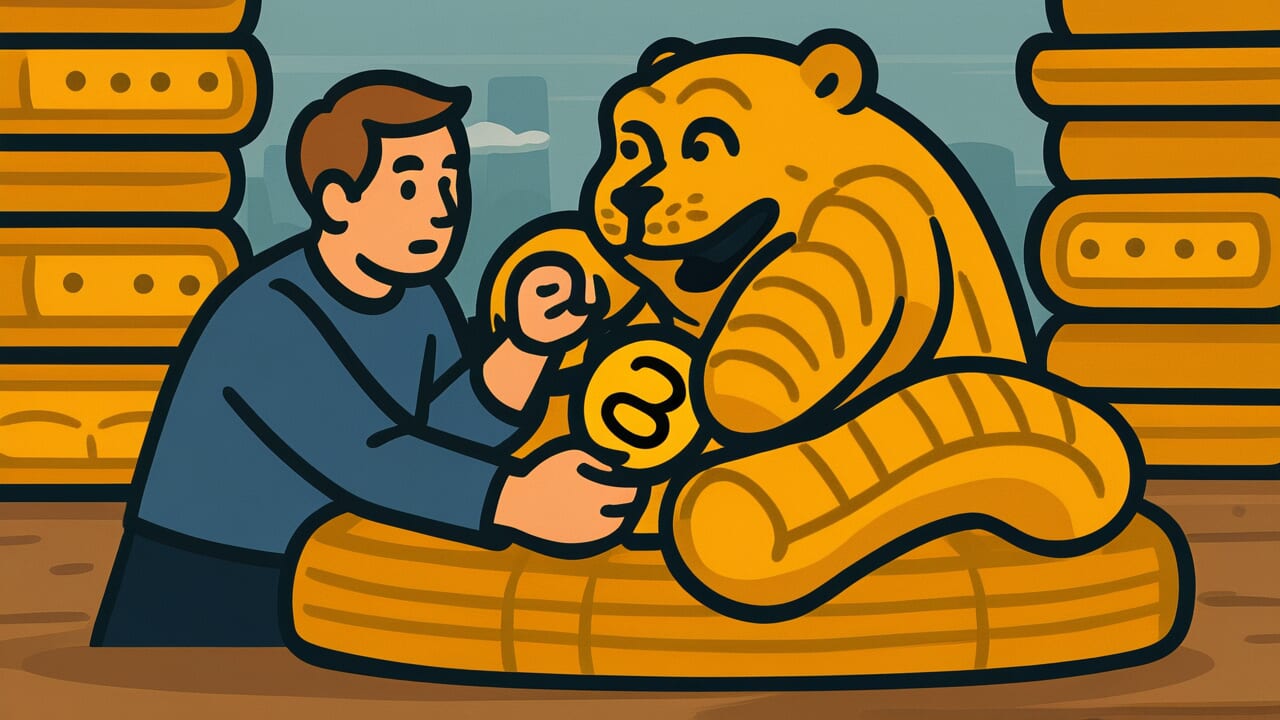How to Read “Money is the enemy”
Kane ga kataki
Meaning of “Money is the enemy”
“Money is the enemy” means that the desire for money is the greatest enemy humans face. Money itself is not bad. The problem is excessive attachment to money and greed.
These desires cloud our judgment and cause us to lose what truly matters.
This proverb warns against drowning in greed. It also describes situations where money troubles destroy relationships. Friendship, trust, and family bonds are irreplaceable.
Yet these precious things can easily crumble when people become obsessed with money. This short phrase sharply points out this harsh reality.
This teaching remains relevant in modern society. In fact, it may be more important now than ever. Economic activities have become complex.
Money touches every aspect of our lives today. Maintaining a proper distance from greed has become increasingly crucial. Money is a means for living, not the purpose of life.
This is a basic truth that we often forget. This proverb reminds us of this fundamental wisdom.
Origin and Etymology
The exact first appearance of this proverb in literature is unclear. However, the structure of the phrase reveals something important. It is extremely simple and powerful.
The brevity of “Money is the enemy” in three Japanese characters seems intentional. It was designed to be carved into people’s hearts like a warning.
Japan has long held complex feelings about money. Money is essential for life. Yet it also has the power to corrupt people’s hearts.
Money has always been viewed with caution. Buddhist teachings about worldly desires and the samurai ideal of noble poverty are examples. Warnings against greed are deeply rooted in Japanese culture.
The choice of the word “enemy” is also interesting. The proverb doesn’t say money is “bad” or “dangerous.” It uses “enemy,” a word that indicates an opponent in battle.
This shows that confronting greed is a serious battle in life. It also suggests something deeper. Greed is not an external temptation.
It is an internal desire that arises from within ourselves.
During the Edo period, merchant culture flourished. People witnessed more cases of relationships destroyed over money. They saw the tragic ends of those blinded by greed.
This may be part of the background for why this proverb spread. Though concise, it is based on deep observation of human nature. It has been passed down through generations as such.
Usage Examples
- That person destroyed themselves because money is the enemy
- They say money is the enemy, and blinded by greed, he lost his precious friends
Universal Wisdom
Humans are strangely weak against desire. Everyone understands this intellectually. There are things more important than money.
Family, friends, trust, health, and personal pride. Yet when financial gain appears before us, this obvious truth becomes blurred.
Why does the desire for money confuse people so much? It lies in the “possibility” that money represents. Money can buy anything, money brings happiness, money earns respect.
These illusions take deep root in people’s hearts. But ironically, the more we chase these illusions, the further true happiness and fulfillment slip away.
“Money is the enemy” was born and has been passed down for hundreds of years. This is because human nature remains unchanged across time. Ancient people, medieval people, and modern people all face the same temptations.
We all risk making the same mistakes.
Our ancestors realized something important. The true enemy is not outside but within. It is the desire inside ourselves.
Facing and controlling that enemy is human maturity. It is the path to true richness. This proverb acknowledges human weakness.
But it also carries a message of hope. We can have the wisdom to overcome our weaknesses.
When AI Hears This
When money enters the picture, human relationships become quantified. This triggers what game theory calls the “prisoner’s dilemma.”
Consider a relationship where friends help each other. Without money, they operate on long-term trust. “I’ll help you today because you’re in trouble, and you’ll help me someday.”
This is called a repeated game, where cooperation is the optimal strategy. But when money gets involved, things change. “This help is worth 3,000 yen per hour.”
Now you can calculate the value. The relationship transforms into a one-time game. You compare “the amount received from the other person” with “the monetary value of your own effort.”
Here the prisoner’s dilemma emerges. Even if the other person cooperates, you can slack off and get the same reward. That becomes the rational choice.
Because money provides a common measure, the relationship’s value gets measured by “immediate gain or loss.” The invisible asset of long-term trust disappears from the equation.
What’s more interesting is this: as the amount increases, the temptation to betray grows proportionally. You might not care about 100 yen.
But with 1 million yen, the probability of choosing immediate profit over friendship skyrockets. Money functions as a device that destroys cooperation by quantifying cooperative relationships.
Lessons for Today
This proverb teaches us not to lose sight of life’s priorities. Look around you. What truly fills your heart?
Laughter with family, trust with friends, a way of living you can be proud of. These things cannot be bought with money.
Modern society emphasizes income and assets as measures of success. But financial wealth and life’s richness don’t always match. In fact, pursuing money too much risks sacrificing what truly matters.
This proverb warns us of this danger.
This doesn’t mean you should disregard money. What matters is positioning money as a means, not a purpose. Why do you need money?
What is your real goal beyond it? Keep asking yourself these questions.
The “enemy” of greed lives inside your heart. But if you recognize its presence and maintain proper distance, you can live a rich life on your own terms.
You won’t be controlled by money.



Comments